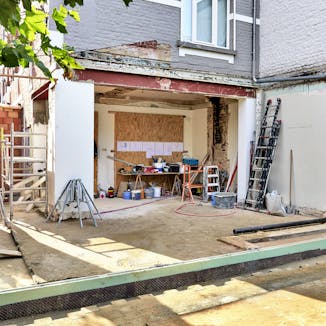Check your eligibility for a £90,000 loan, see the latest rates and get a quote without impacting your credit score.
Get a decision within an hour
Quote won’t affect your credit score
Poor credit & arrears accepted







These products are only available via a broker and can't be applied for directly
We're on a mission to improve the finances of the nation by helping you to spend wisely and save money



We're on a mission to improve the finances of the nation by helping you to spend wisely and save money



By Matt Fernell, Editor at Finance.co.uk.

Borrowing £90,000 can help you do extensive home improvements or refinance expensive debts. Here’s everything you need to know about finding the right £90k loan for you.
When you compare quotes with us, we’ll only show you rates you’re eligible for without impacting your credit score.
Get a decision within an hour
Quotes tailored to you
Compare quotes from a range of trusted lenders
Poor credit history accepted
So we can find £90,000 loan deals tailored to you, we just need to understand:
The loan term you want
Your finances
Your personal details
We’ll then compare quotes from the UK’s leading loan providers to find the lowest rate loan you could get.
To be eligible to get a £90k loan, you will need to be:
A UK resident
At least 18 years old
Able to prove you can afford the repayments
You can only borrow £90,000 with a secured loan, which means you will also need to own a property or another valuable asset you can use as security. Find out everything you need to know about secured loans here.
You can find out the cost of a £90k loan if you know the interest rate (APR) and the term of the loan.
For example, if you had a £90,000 loan over 10 years with an APR of 8.5%, your monthly repayment would be £1,100.80. The total repayable amount would be £132,096.47, which means the loan would cost £42,096.47 in interest over the 10 years.
You can reduce your monthly payments by increasing the loan term, but this would mean you’ll pay more interest overall.
For example, a £90,000 loan over 20 years would have monthly repayments of only £763.24, but the total repayable amount would be £183,176.60. So, the overall cost in interest would more than double to £93,176.60.
Personal loans are usually only available for smaller amounts, between £1,000 and £25,000, so you won’t be able to get an unsecured loan for £90,000.
Therefore, you will need a secured loan to borrow £90,000. This is a loan that is secured against an asset you own, usually your home. It means the lender can use the equity in your property to cover any debts if you cannot make the repayments.
If you want a £90,000 home loan to pay off debt, you can get a debt consolidation loan. This is a type of secured borrowing designed to clear multiple expensive debts you have, like credit cards, overdrafts and other loans. This will leave you with one affordable repayment.
It is possible to get a £90,000 loan if you have a poor credit history, and lenders are usually more willing to offer secured loans if you have bad credit because using your home as collateral reduces their risk.
However, you won’t be able to access the lowest rates unless you have an excellent credit rating. That means your loan will probably be more expensive if you have bad credit. Find out more about getting a loan with bad credit here.
If you are struggling to manage your borrowing, a debt consolidation loan could help you to rebuild your credit report.
The information provided does not constitute financial advice, it’s always important to do your own research to ensure a financial product is right for your circumstances. If you’re unsure you should contact an independent financial advisor.
The annual percentage rate (APR) is a rate displayed to help you work out the cost of borrowing. It includes the interest rate and any standard charges for the loan. All finance companies have to provide a representative example and tell you the APR of the loan before you sign a credit agreement.
For example, an APR of 6% on a £50,000 loan means your interest after a year should be around 6% of £50,000, which is £3,000.
The representative APR is an advertised rate that 51% of the people approved for credit will be offered. If your credit rating is poor or you have a low income, you could pay more than the representative APR being advertised.
If you don’t think you’ll be able to repay your loan, contact the lender as soon as possible. They could be able to help by working out a new repayment plan you can afford or authorising a payment holiday to give you some time to get your finances back on track.
If you miss your repayments without telling your lender, you will probably face late payment fees and interest. It will also harm your credit rating and could put your home at risk if you have a secured loan.
You can use the money for whatever you like, including:
Paying for major home improvements
Debt consolidation
Making an expensive purchase like a new car
Covering the cost of a significant event like a wedding
However, there may be certain restrictions and things providers won’t lend for, including:
Gambling or high-risk investments
Purchases of property or land
Timeshares
When you get quotes from us, we will ask what you are looking to borrow for. This is to help us find the loans that are right for you.
Getting a £90,000 loan is a big commitment, so think carefully about whether or not you really need the money before you apply.
Most lenders allow you to repay your loan early, but they will probably charge you a fee to do this.
When you take out a loan, check to see what early repayment charges apply. They are usually charged on a sliding scale and are based on one or two month’s worth of interest.
That means the closer you are to paying off the loan, the lower the charges are likely to be because there won’t be as much interest left to pay.
The application process for a £90k secured loan can take a few weeks to complete, but once approved, you could receive the money on the same day.
The application takes a lot longer than for a personal loan because you will need to provide more documentation, including mortgage statements and proof of home ownership. The lender may also want to conduct a valuation or survey of your property before agreeing to lend you the money.
Secured loans are available with a fixed or variable interest rate. Getting a fixed-rate loan means that you’ll pay the same rate for the term of your loan, and the repayments won’t change. This makes budgeting easier and gives you the security of knowing your payments won’t go up.
A variable interest rate, however, can change depending on things like the Bank of England base rate. Most variable-rate loans often don’t have early repayment charges, and you can benefit if interest rates fall. However, it can make budgeting difficult as your payments could increase anytime.
Which option is best for you depends on your attitude to risk and what level of flexibility you want with your repayments.